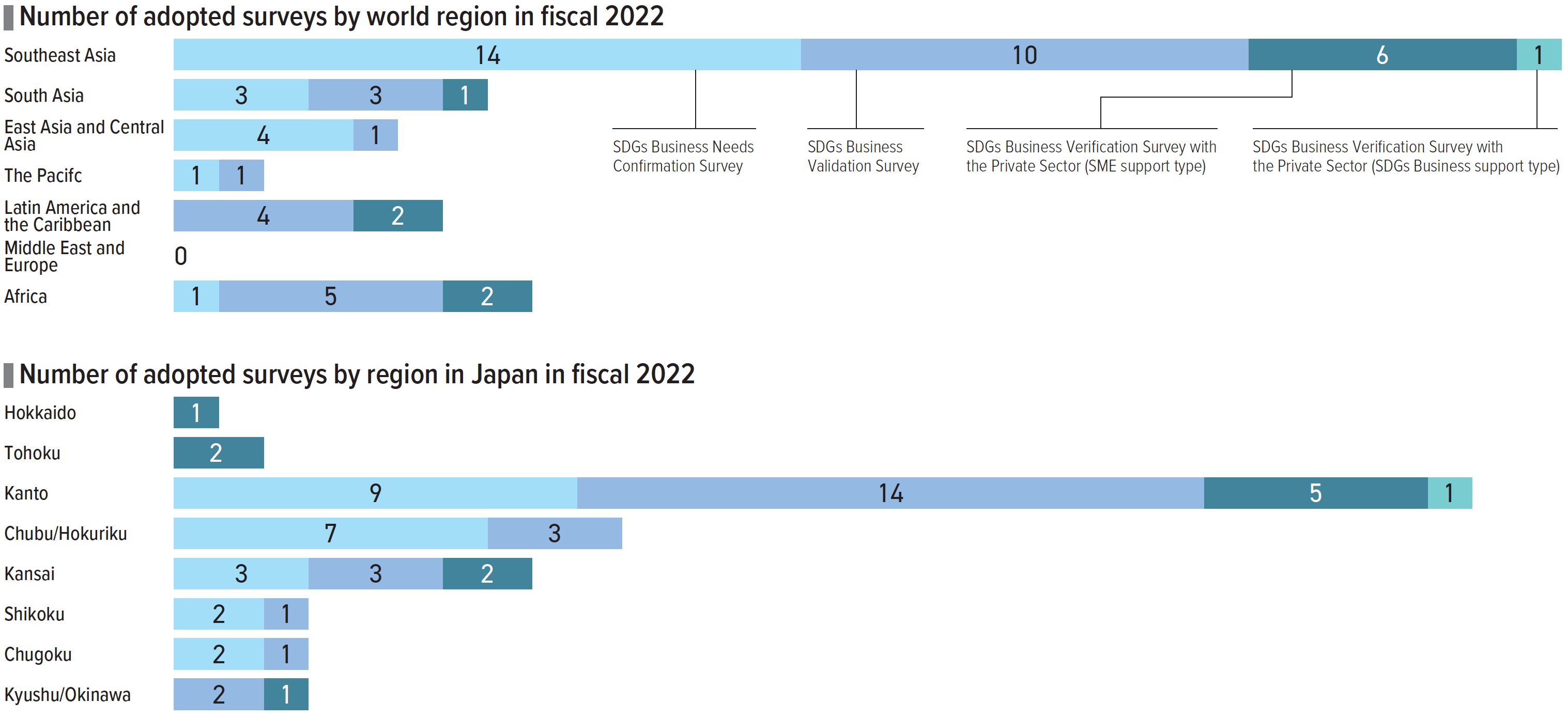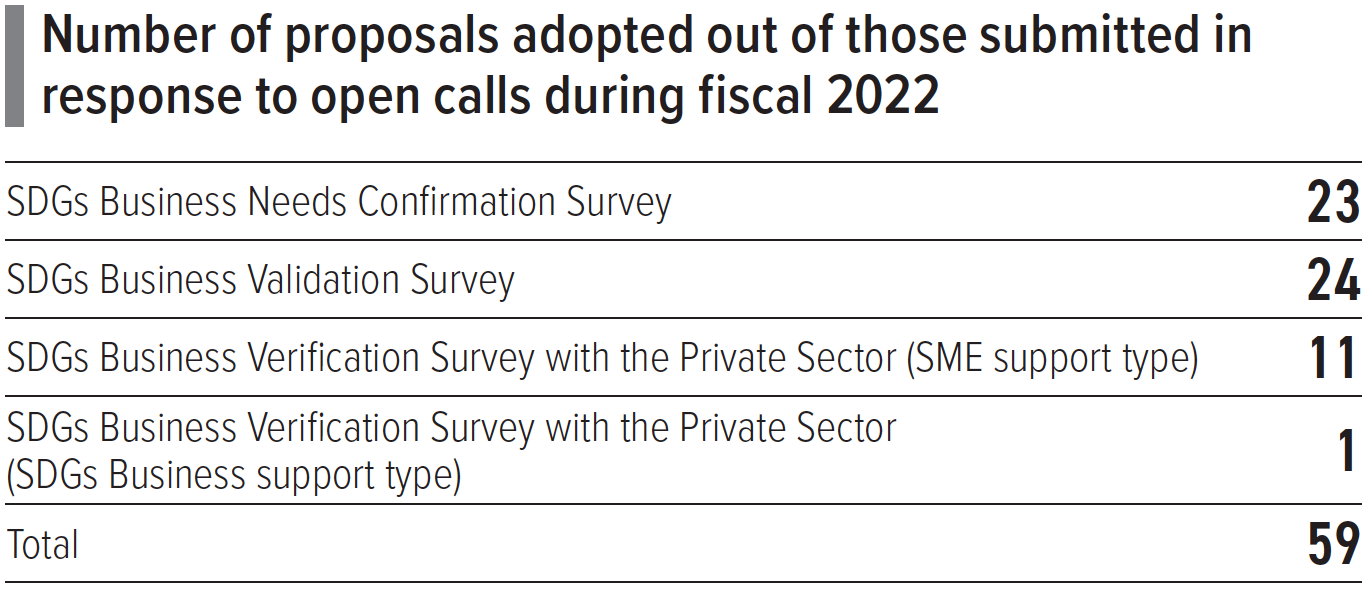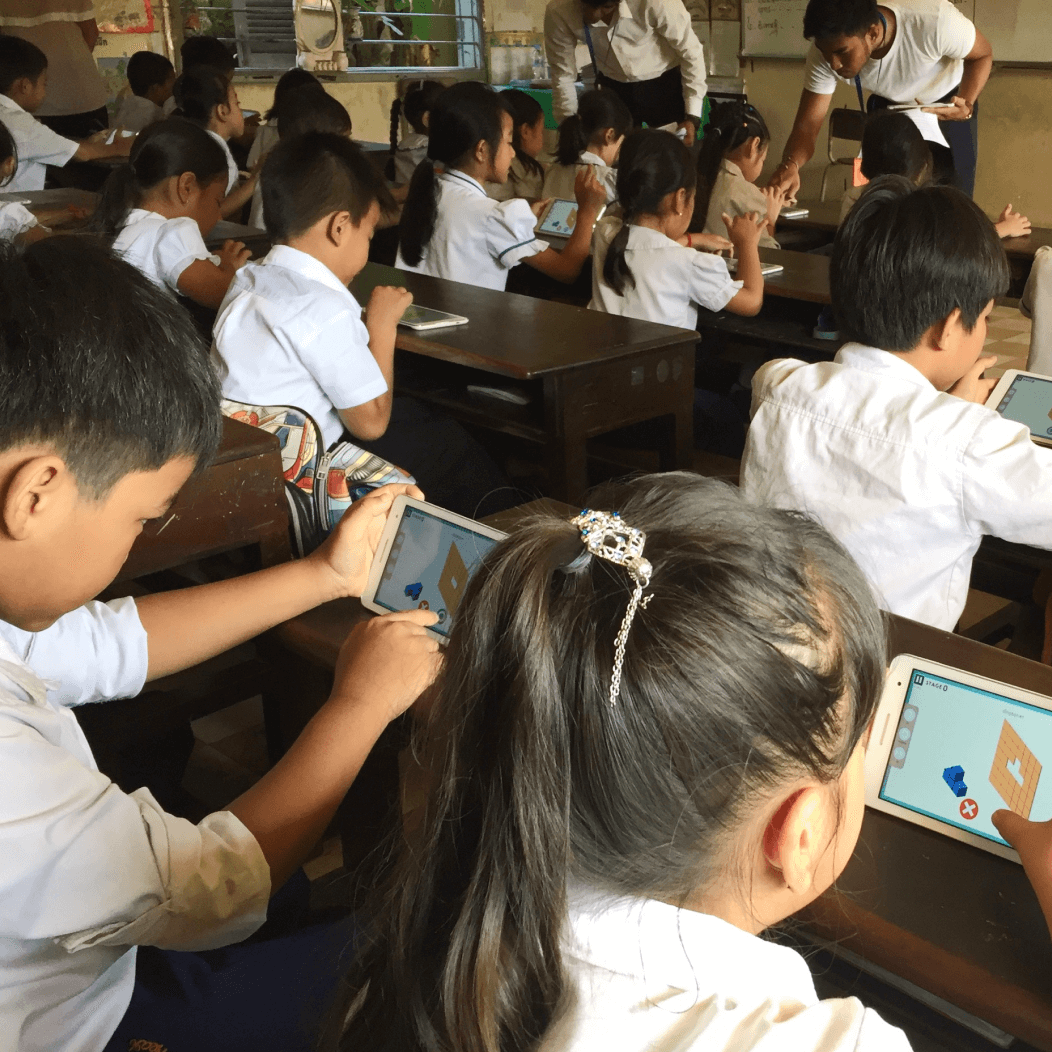
Partnerships
Cooperation with the Private Sector
Supporting Economic and Social Development through Private-Sector Business Activities

Partnerships
Cooperation with the Private Sector
Supporting Economic and Social Development through Private-Sector Business Activities
JICA has networks and trusting relationships with the governments of developing countries as well as the know-how in project implementation in the developing world gained through ODA over many years. While making use of these assets, JICA provides wide-ranging support schemes, as shown in the figure on page 51, to produce better development results efficiently and effectively through further collaboration with the private sector.
Private-Sector Investment Finance
Economic and social development support in developing countries by the private sector
Of the Finance and Investment Cooperation provided by JICA, Private-Sector Investment Finance (PSIF) is a scheme to support, through the provision of loans and equity, private enterprises around the world, including Japanese companies that conduct business with high development outcomes in such sectors as infrastructure development, poverty reduction, and measures against climate change.
In implementing PSIF projects, JICA collaborates with private and international financial institutions and coordinates with JICA’s other ODA programs, projects, and schemes. In this way, JICA aims to further improve development outcomes while reducing project risks. In particular, JICA is strengthening cooperation with development finance institutions and international organizations in order to promote co-financing. Over the past years, JICA has signed memoranda of cooperation (MOC) with the U.S. International Development Finance Corporation, the Agence Française de Développement, the International Finance Corporation, the Asian Development Bank, the African Development Bank, the European Bank for Reconstruction and Development, and the European Investment Bank.
In fiscal 2022, JICA approved 21 projects under PSIF. These included (1) renewable energy projects, such as the Ninh Thuan Province Onshore Wind Power Project in Viet Nam and the Zarafshan Wind Farm Project in Uzbekistan; and (2) financial inclusion projects to support micro, small, and medium enterprises (MSMEs) owned by women, such as the Micro, Small and Medium Enterprises Support Project in Palestine, and the project for sustainable portfolio and MSMEs in Ecuador. Through these two types of projects and others, JICA took steps to work on decarbonization and improved financial access, among other important agenda items. Furthermore, by combining the Bangladesh Special Economic Zone Development Project with ODA Loan and technical cooperation projects, JICA is delivering comprehensive cooperation for industrial diversification in Bangladesh.
In fiscal 2022, JICA launched PSIF projects in many countries and regions for the first time. These included Uzbekistan, Palestine, Laos, Costa Rica, and the Maldives. JICA will continue promoting assistance through PSIF.
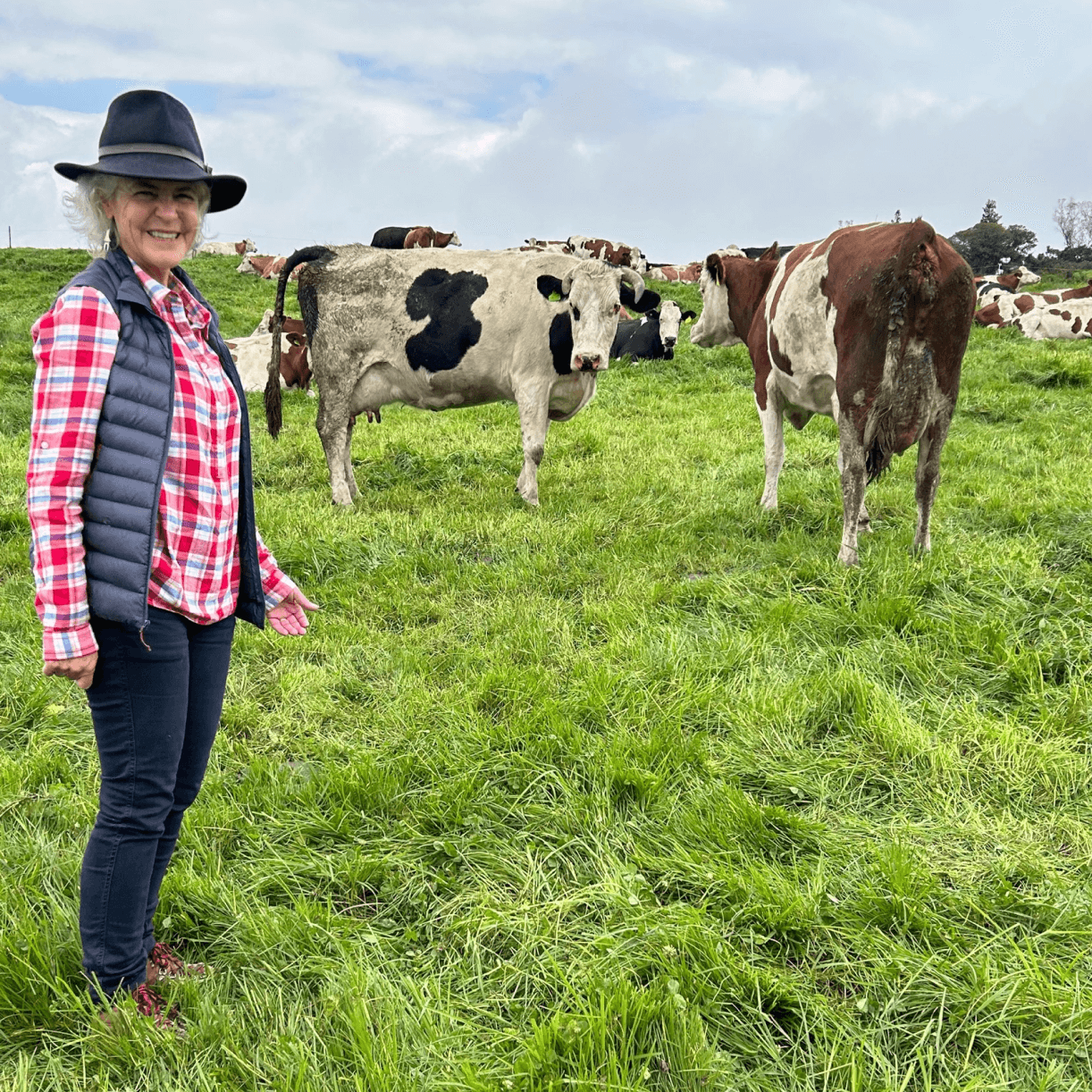
Ecuador: The project for sustainable portfolio and micro, small, and medium enterprises (MSMEs) provides financial assistance under PSIF in cooperation with the International Finance Corporation (IFC). The photo shows a dairy farm operated by a woman who has received loans from Banco de la Producción S.A. Produbanco, a large commercial bank in Ecuador, the borrower in this project. The farm produces organic fertilizer from cattle manure and aims to establish a sustainable management model in which the biogas produced in the production process is used for the farm’s electricity.
Preparatory Survey for Private-Sector Investment Finance
Supporting the formation of promising PSIF projects
This scheme is designed to identify and formulate projects that capitalize on the expertise of Japan’s private sector. Under the scheme, JICA entrusts the necessary surveys to Japanese private companies that have submitted promising proposals so as to develop project plans to be implemented that utilize PSIF. In fiscal 2022, JICA adopted five proposals under the scheme.
There are many challenges related to this kind of project in developing countries. These challenges include an inadequate investment environment in both physical and nonphysical aspects, difficulties in securing financial viability, and insufficient recognition of proper public-private role-sharing and risk allocation (insufficient support from developing-country governments). Therefore, in addition to supporting individual projects by the private sector, JICA is promoting comprehensive efforts for the formulation of business projects by cooperating in the establishment of associated policies and institutions and strengthening implementation capacities.
SDGs Business Supporting Surveys
Supporting the creation and deployment of businesses that help developing countries achieve the SDGs
SDGs Business Supporting Surveys is a program based on proposals from private companies. It is aimed at building win-win relationships between developing countries that want to use Japanese technologies, products, and know-how for addressing their challenges and Japanese companies that seek to venture into developing-country markets.
Recent years have seen accelerated inflow of private funds for the development of developing countries, raising expectations even higher for the utilization of business strengths in solving development issues. More businesses are proactively incorporating the SDGs in their corporate management. An increasing number of financial institutions are focusing on ESG investing and impact investing. The affinity between business and efforts to solve development issues is stronger than ever.
This program offers three support schemes according to the stage of business: SDGs Business Needs Confirmation Survey, SDGs Business Validation Survey, and SDGs Business Verification Survey with the Private Sector.
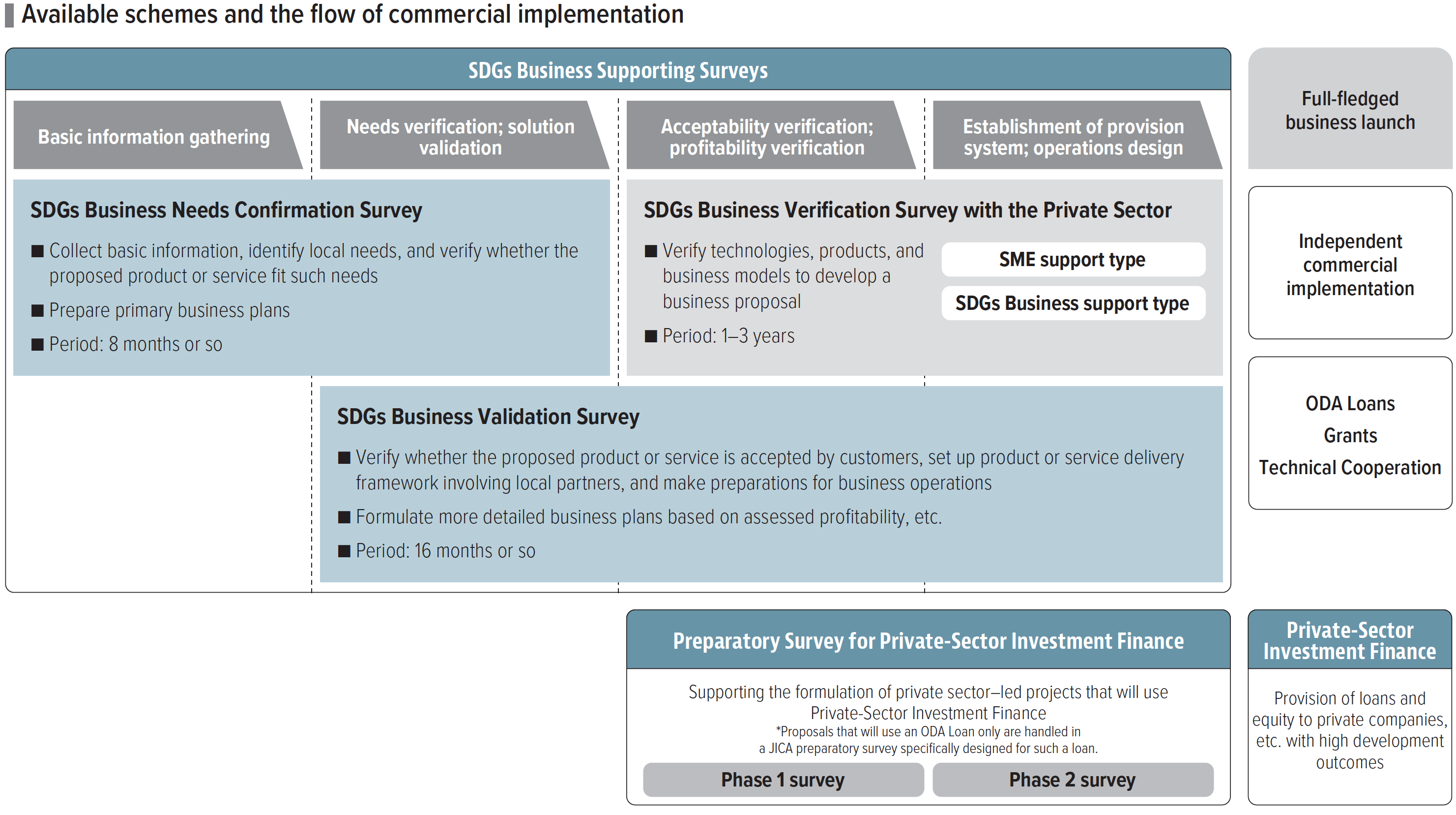
Meeting development needs with innovative services
Of the proposals submitted in response to open calls made from fiscal 2010, when JICA launched private- sector partnership programs, through fiscal 2022, JICA has adopted and supported an aggregated total of 1,448 proposals under this program. In recent years, JICA has been adopting proposals from start-ups, expecting their contribution in resolving the increasingly complex challenges facing partner countries with their advanced technologies and innovative business ideas.
A case in point is the ongoing project by Wonderfy Inc., a Tokyo-based start-up that develops and operates teaching materials and content that “bring out a sense of wonder” in children around the world. Under JICA’s program, this firm has introduced its educational app “Think!Think!” in Cambodia, contributing to improved academic performance and a higher graduation rate there.
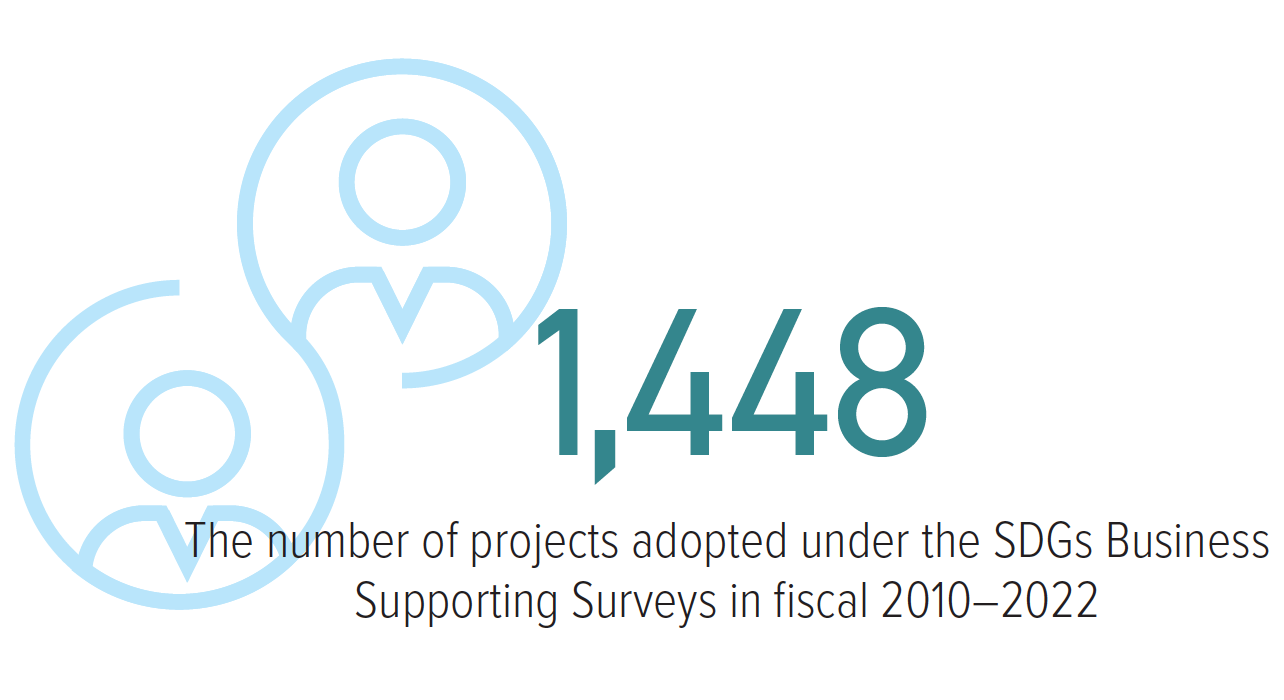
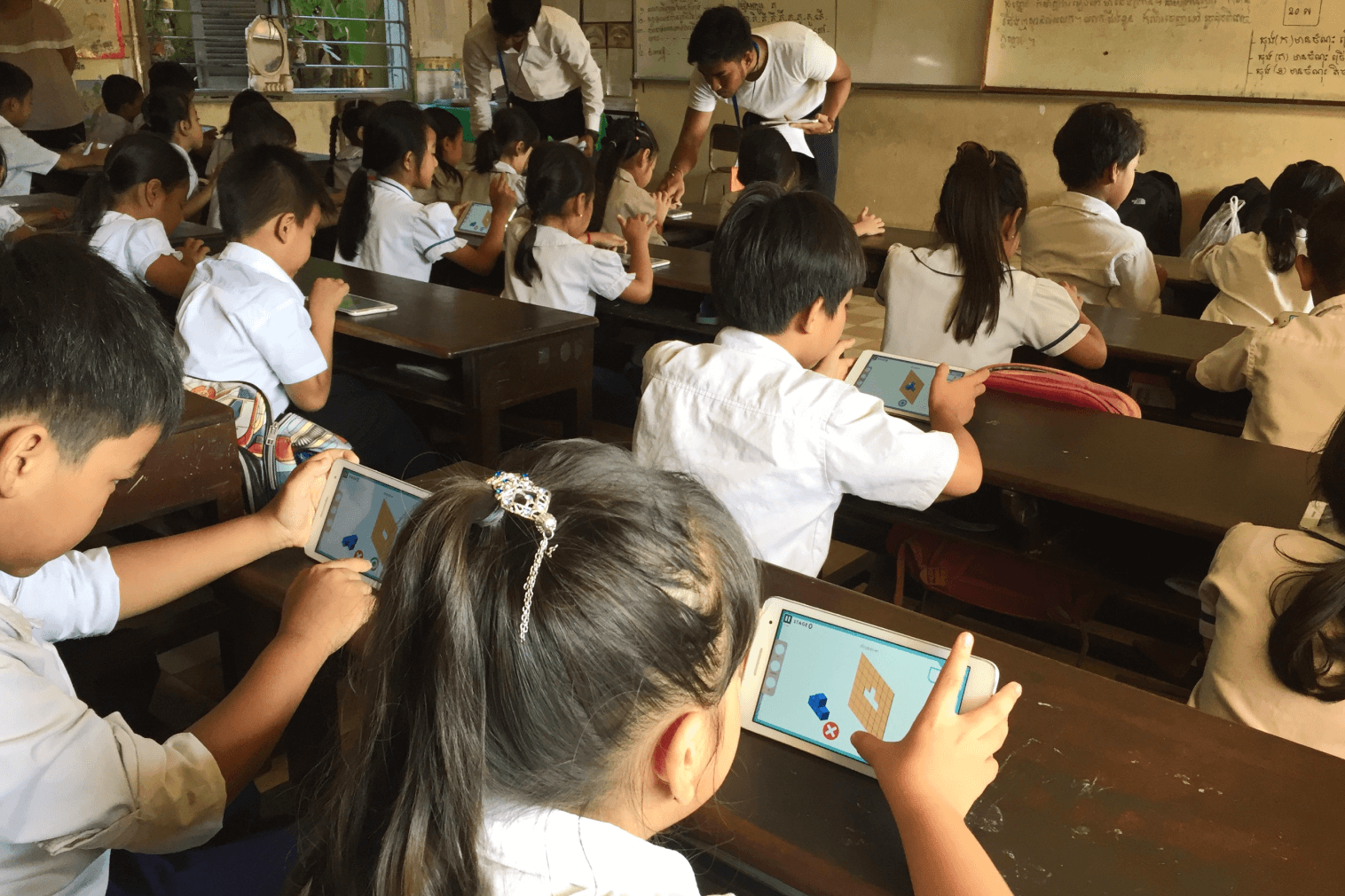
Cambodia: Wonderfy Inc. capitalizes on JICA’s support program to raise both the visibility of the proposed product and the level of primary education in the country. The photo shows children studying with the company’s educational app.
Fifty-nine proposals adopted under a new framework
In fiscal 2022, JICA reorganized the portfolio of support schemes under this program on a trial basis. The aims were improving convenience, driving commercialization, and accelerating development impacts. Under this new framework, JICA cast a wide net to solicit proposals from businesses willing to address challenges facing partner countries. It adopted 59 proposals in this fiscal year.
A breakdown shows 12 proposals were adopted under the SDGs Business Verification Survey with the Private Sector, a scheme that remained unchanged from before the portfolio reorganization; 23 proposals were adopted under the SDGs Business Needs Confirmation Survey, which assists in collecting basic information, verifying the compatibility between the proposed product or service and the partner country’s needs, and preparing initial business plans; and 24 proposals were adopted under the SDGs Business Validation Survey, which focuses on services and products whose business compatibility has been verified and assists in formulating more detailed business plans by assessing profitability as well as setting up a product or service delivery framework and an operating structure.
